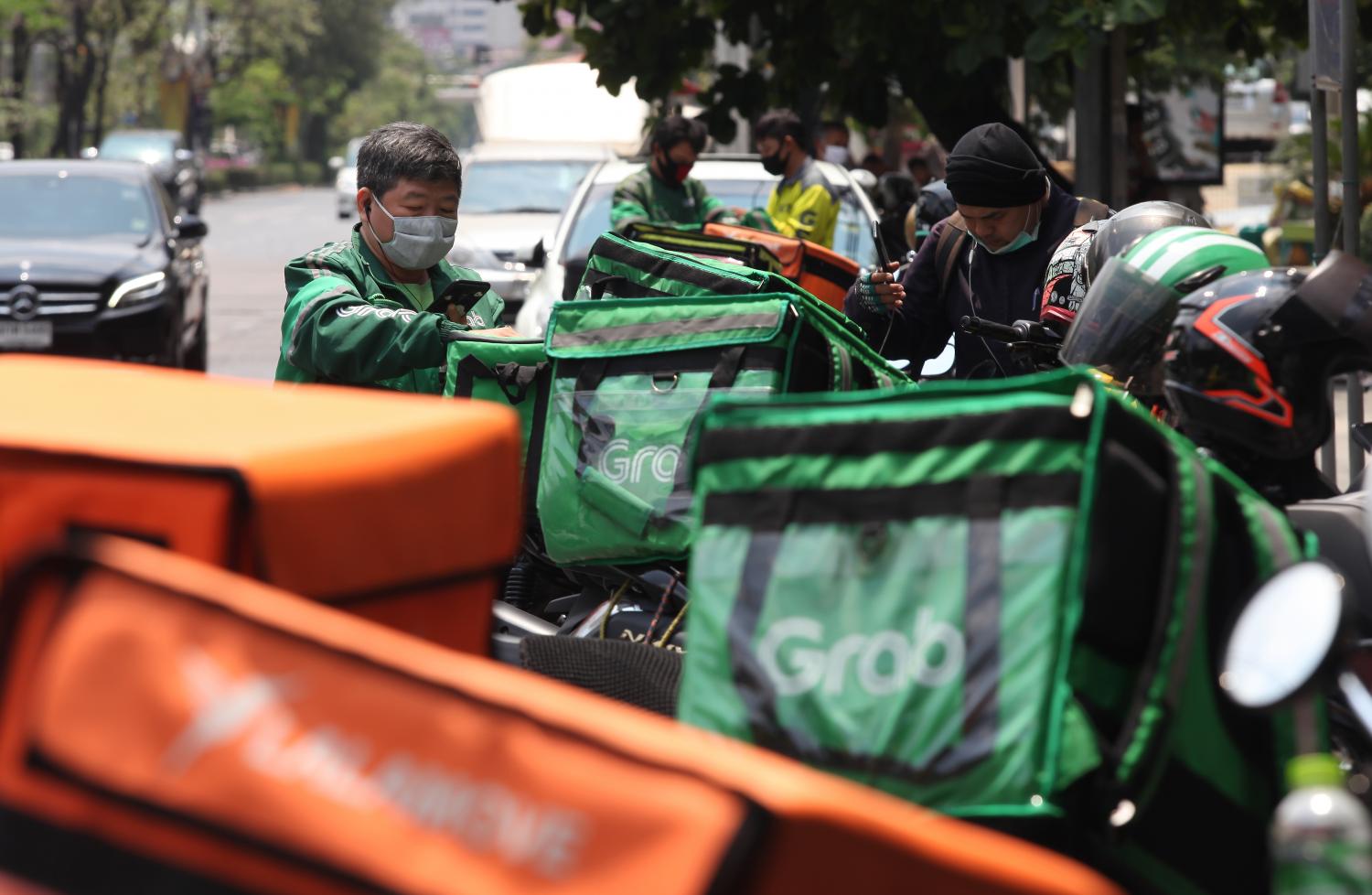
Fired up by the pandemic, the battle between online food ordering platforms is intensifying as operators seek more capital, expand services in provinces and gear up for cloud kitchen investment to stay afloat in the contentious market.
Kasikorn Research Center (K-Research) says the winners in the segment could be seen in three years.
Last year, four major food delivery and ride-hailing players registered losses of more than 4.2 billion baht in total, according to Creden.co, a fintech firm that provides online authentication with e-KYC (electronic know your customer). The four are Grab, Foodpanda, Get (Gojek) and Line Man.
Grab, registered under Grabtaxi Thailand, recorded revenue of 3.2 billion baht and a loss of 1.7 billion baht. The figure is likely a combination of earnings from various Grab services, including ride-hailing and parcel express delivery, Pawoot Pongvitayapanu, co-founder of Creden.co, said on his Facebook page.
The former head of Grab Thailand, Tarin Thaniyavarn, said in April that GrabFood's delivery service was still unprofitable despite growing demand, as it still needed to subsidise delivery costs and offer promotions to attract users.
Foodpanda, registered under Delivery Hero Thailand, posted 818 million baht in revenue and a 1.3-billion-baht loss last year.
Get, registered under Velox Digital Co, booked 133 million baht in revenue and a 1.1-billion-baht loss.
Line Man took in 49.9 million baht and announced a 157-million-baht loss.
Line Man last week said it would soon merge with restaurant review platform Wongnai while receiving the support of 3.3 billion baht in investment from BRV Capital Management, a growth capital firm.
BRV is an affiliated entity of BlueRun Ventures, a US-based venture capital firm.
"The pandemic is accelerating the competition in the online food delivery segment," Anantaporn Lapsakkarn, a senior researcher at K-Research, told the Bangkok Post. "Instead of six years, we could see a winner in this segment within three years."
These four food delivery players must expand their footprint as much as possible, particularly beyond Bangkok and get deeper into food sub-segments in restaurants, he said.
Cloud kitchens are another area where food delivery apps are expanding, as these kitchens can keep delivery costs low while also accommodating various kinds of restaurants under the same roof.
Referring to the merger of Line Man and Wongnai, Mr Anantaporn said the deal might not drastically change the online food ordering business landscape, as there is strong competition.
The merger could, however, make it harder for newcomers to enter the market, he said.
Those who survive the online food war need to have a niche market and expertise in ensuring a low commission fee, also called gross profit (GP).
According to K-Research, the food delivery market this year is projected to grow 19-21% from 35 billion baht last year. This outlook is up from a previous forecast of 17%.
"Food delivery shows promising signs in Thailand, as we have a lot of motorcycle riders, while the pandemic pushed people out of work and they became rider partners," Mr Anantaporn said. "Consumers are accustomed to ordering food delivery via apps because of the lockdown."
Many restaurants have sought to set up their own delivery rider networks to avoid being too dependent on the online food ordering platforms to which they are obliged to pay high GP fees, he said.